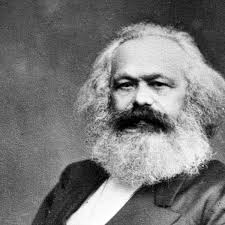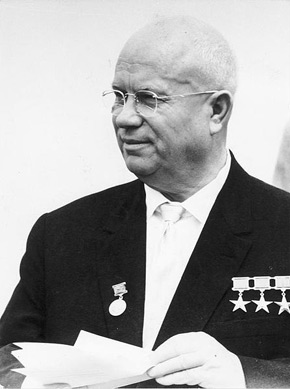Karl Marx – (1818 – 1883)
German thinker.
“Religion is the sigh of the oppressed creature, the heart of a heartless world, and the spirit of a spiritless situation. It is the opium of the people.” – Karl Marx.
This quotation is from Karl Marx, and he used it to express his view of religion within a societal context. Let’s unpack it together.
- “Religion is the sigh of the oppressed creature…”: This part of the statement suggests that religion provides comfort or relief to those who are suffering or oppressed. It can be interpreted as a cry or an expression of pain. When people feel powerless or downtrodden, they might turn to religion to find solace and meaning.
- “…the heart of a heartless world…”: Here, Marx is emphasizing that in a world that can often seem cruel, uncaring, and devoid of compassion, religion might offer a sense of warmth, love, and humanity. It provides something to cling to when everything else feels cold and inhuman.
- “…and the spirit of a spiritless situation.”: This line speaks to the way religion can infuse life and vitality into situations that might otherwise feel dull, lifeless, or devoid of purpose. It’s a way of saying that religion can bring a sense of spirit or enthusiasm to otherwise dreary circumstances.
- “It is the opium of the people.”: This is probably the most famous part of the quote. By likening religion to opium, a narcotic used for pain relief, Marx is suggesting that religion dulls the senses and keeps people from fully recognizing their conditions of oppression or exploitation. Just as opium might mask physical pain, religion, according to Marx, masks the social and economic pain, keeping people complacent within a system that may be unjust.
It’s worth noting that Marx’s view of religion is deeply connected to his economic and social theories. He saw religion as a tool used by the ruling classes to keep the working classes passive and content with their lot in life, rather than rising up to challenge the status quo.
However, like many philosophical ideas, this one can be interpreted in various ways, and people might agree or disagree with Marx’s take on religion based on their own beliefs, experiences, and perspectives.
Communist Manifesto
“The Communist Manifesto” by Karl Marx and Friedrich Engels.
- When Was It Written? The Communist Manifesto was written in 1847 and published on February 21, 1848.
- Addressed To Whom? It was primarily addressed to the working class, often referred to as the proletariat. Its aim was to awaken the workers to their common interests and struggles, encouraging them to unite.
- Contents of The Communist Manifesto: The document is divided into four main parts:
- Introduction: Outlines the authors’ general ideas about the history of the class struggle.
- Bourgeois and Proletarians: Focuses on the historical development of the bourgeoisie, the capitalist class, and its relationship with the working class.
- Proletarians and Communists: Details the goals of Communists, their relationship with the proletariat, and their strategies.
- Socialist and Communist Literature: Discusses different strains of socialism and communism, and critiques other contemporary socialist movements.
- A conclusion that contains the rallying cry: “Workers of All Lands Unite.”
- Significance:
- Influence on Political Thought: It is one of the most influential political documents in history and a foundational text for Marxist thought.
- Inspiration for Social Movements: It provided theoretical guidance for various socialist and communist movements around the world.
- Critique of Capitalism: It laid out a comprehensive critique of the capitalist system and its inherent inequalities.
- Written for Which Organisation? Marx and Engels wrote the Manifesto for the Communist League, a revolutionary socialist group that had members across Europe. They were commissioned by the League’s Second Congress to write the document as a concise expression of their ideology.
The Communist Manifesto is more than just a historical artifact; its themes continue to be relevant in contemporary political and economic debates. Whether it’s viewed as an inspiring call to action or a contentious symbol of a divisive ideology, its influence on modern political thought is undeniable.
The philosopher who changed the world.
“Philosophers have only interpreted the world in various ways. The point, however, is to change it.”
This statement is another powerful one from Karl Marx, specifically from his “Theses on Feuerbach.” It’s a dense and provocative line that captures a lot of what sets Marx’s thought apart. Let’s break it down:
- “Philosophers have only interpreted the world in various ways.”: Here, Marx is critiquing the role of traditional philosophy. He’s arguing that philosophers have often been content to merely analyse, explain, or interpret the world and its problems. They’ve developed theories about existence, ethics, politics, and so on, but these have largely remained in the realm of abstract thought.
- “The point, however, is to change it.”: With this sentence, Marx is stating that the real purpose of thinking and theorising should be to bring about tangible change in the world. It’s not enough to simply understand the world or diagnose its problems; one must actively engage in transforming it.
This is fundamental to Marx’s philosophy, which is deeply concerned with material conditions, social relations, and the dynamics of power. His critique of capitalism, his calls for workers to unite, and much of his other work all stem from this desire not merely to understand the world but to change it in line with his vision of justice and equality.
This line also reflects the belief in human agency and the capacity to change societal structures, which was essential to Marxist thought. It rejects a fatalistic or deterministic view that things are just the way they are and cannot be altered.
It’s a concise encapsulation of a highly activist and pragmatic approach to philosophy, one that insists that ideas must be translated into action if they are to have real value. This stance has inspired many activists and thinkers since Marx’s time, but like much of his work, it’s also been the subject of debate and controversy.
Friedrich Engels
“a class which bears all the disadvantages of the social order without enjoying its advantages, […] Who can demand that such a class respect this social order?”
All files in Marathi – Presentations in PDF format
YouTube Videos – recorded lectures.
![]()


